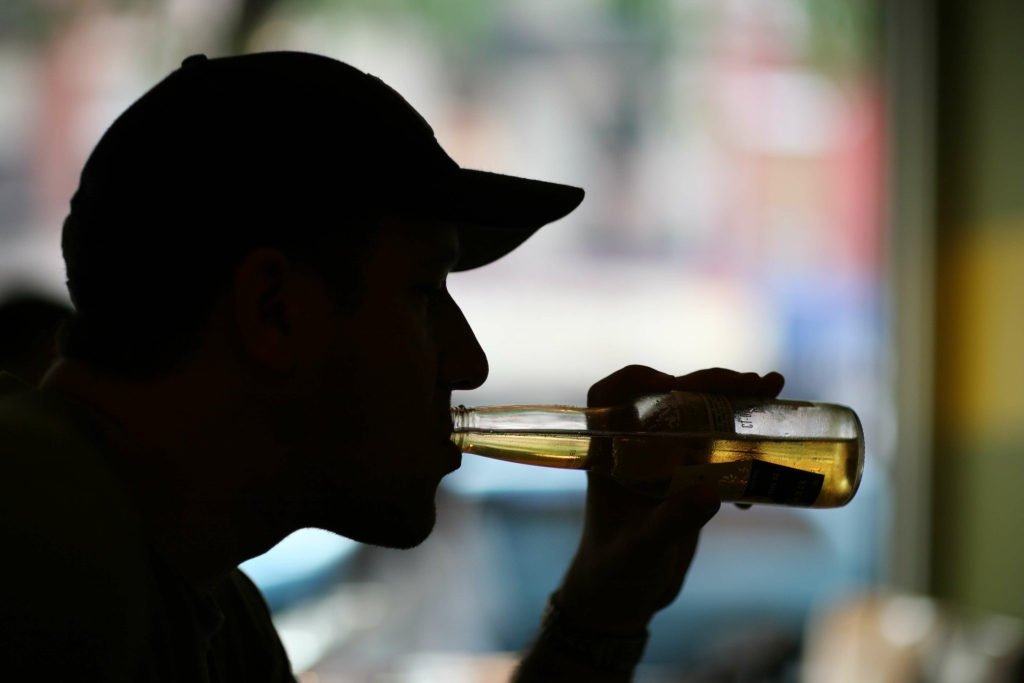Study reveals genes associated with heavy drinking and alcoholism: Unique genetic variants may inform future treatments for each alcohol disorder ScienceDaily
Content
Those with moderate or severe disorders may need to go through a medically supervised detoxification program. And they may need to attend a series of therapy sessions in a treatment center. The most important thing to remember is that resigning from alcohol abuse is never okay. Not only is alcoholism a progressive disease, but it is also a fatal one.
All tracks include behavioral therapy, counseling, and participation in 12-step programs. Our expert medical and mental health staff specialize in addiction and provide patients with the tools and insight they need to recover and maintain longstanding wellness and sobriety. A phenotype is a set of observable characteristics of an individual resulting from the interaction of its genotype with the environment. How exactly a phenotype is expressed is complicated – for example, a person with one parent with green eyes and one parent with brown eyes has genes for both colors – yet usually, only one color will be expressed.
Treatment
So, if alcoholism can be traced to a certain gene or combination of genes, how can we use that information? “These genes are for risk, not for destiny,” states Dr. Enoch Gordis, director of the National Institute on Alcohol Abuse and Alcoholism. He added that the information could help in identifying youngsters at risk of becoming alcoholics and could lead to early prevention efforts.

Mental health conditions – psychiatric illnesses such as depression, anxiety, bipolar disorder, ADHD, and PTSD place an individual at an increased risk of developing AUD. For these people, alcohol or other drugs is often used as a means to self-medicate against certain mental health symptoms. Some people possess a gene that can increase feelings of discomfort or sickness when consuming alcohol, which typically leads to less use. Instead of being turned off by alcohol consumption, some people seek comfort in drinking to help reduce stress and anxiety. It just depends on the combinations of genes of each individual.
Alcoholism: An Overview
They discovered those samples have lower GAT-3 in the amygdala as well. There is a distinct link between substance abuse problems and mental health issues such as anxiety, bipolar disorder, and depression. Other factors like mental health struggles sober house or early experiences with alcohol, like underage drinking, can make someone more likely to struggle with alcohol dependency issues, as well. The longer they can hold off drinking, the less chance they have of developing alcohol use disorder.

One of the biggest environmental factors is growing up in a home where alcohol is consistently available. If a child sees their parents drinking, or if there is no parental supervision over the consumption of alcohol, then it is likely that they may develop an unhealthy relationship with alcohol later on in life. Children begin to see this as just another daily activity and therefore are less concerned about overall risk. Co-occurring substance abuse and mental health issues are extremely common – roughly 50 percent of people with severe mental disorders are affected by substance abuse. Self-medication for mental health problems is common and can lead to addiction.
Can Our Genes Affect Alcohol Treatment?
You or your family member can get the proper help needed to overcome alcoholism or problematic drinking and are not bound to addiction by heredity or genetics. Support from family and friends will make this battle all the easier. First, there may be something about identical twin males, genetically speaking, that makes them more likely to express an alcohol use disorder if one twin has one as compared to females (50 percent versus 30 percent).
Is alcoholism genetic or epigenetic?
Alcoholism is a complex psychiatric disorder that has a multifactorial etiology. Epigenetic mechanisms are uniquely capable of accounting for the multifactorial nature of the disease in that they are highly stable and are affected by environmental factors, including alcohol itself.
If you or someone you know is struggling with alcohol abuse, The Recovery Village is here to help. Our individualized treatment programs help people recover from alcohol addiction and begin the path toward a happier, healthier life. Contact us today to learn more about addiction recovery programs that can work well for your needs. Alcohol is highly addictive and often used to self-medicate in the face of environmental and social triggers, mental health concerns and other stressors. It can create feelings of happiness and freedom, also referred to as a buzz, which allows people to temporarily escape from financial woes, stress, family issues and other struggles. For many people, drinking alcohol is also a social activity and is perceived as a way to fit in, especially while underage.
Alcoholism’s Genetics
Genes play a significant role in our overall health and risk of developing many health conditions. Currently little is fully understood about how our genes directly contribute to alcohol use disorder, but there is for sure a correlation. Genes can also play a role in the type of treatment we need to overcome alcoholism.
- Keep tea, soda, flavored water, and other nonalcoholic options available.
- By learning to communicate better, your child will feel more comfortable expressing their feelings and the troubles in their life.
- Everything about a person, from eye color to behavior, can be explained by their genes.
- The diverse study sample is notable, in that it included more than 50,000 African-Americans, one of the largest genome-wide studies of this population.
These behaviors can be impacted by a person’s genes as well as their environment. One reason why people wonder if alcoholism is hereditary is that it often appears to run in families. On the surface, this would seem to confirm that genetics are to blame.
Your risk of developing AUD if you are a victim of trauma or have used alcohol to cope. Genetics can make you more susceptible to AUD if you started drinking alcohol young and have a history of heavy drinking. There are also gene variants that can predispose people to develop a mental health disorder like bipolar disorder or schizophrenia. Individuals who suffer from mental illness often turn to alcohol as a coping mechanism. For this reason, a person may end up developing an alcohol use disorder to self-soothe their condition.
- To use a legal standard, individuals could feasibly enjoy alcohol while being mindful to constantly keep their blood alcohol content (BAC) to below 0.08 percent.
- How exactly a phenotype is expressed is complicated – for example, a person with one parent with green eyes and one parent with brown eyes has genes for both colors – yet usually, only one color will be expressed.
- Is there any scientific evidence that your genes may predispose you to become an alcoholic if your parents or grandparents are?
- However, as is the case with virtually every aspect of the question, “Is alcoholism genetic?